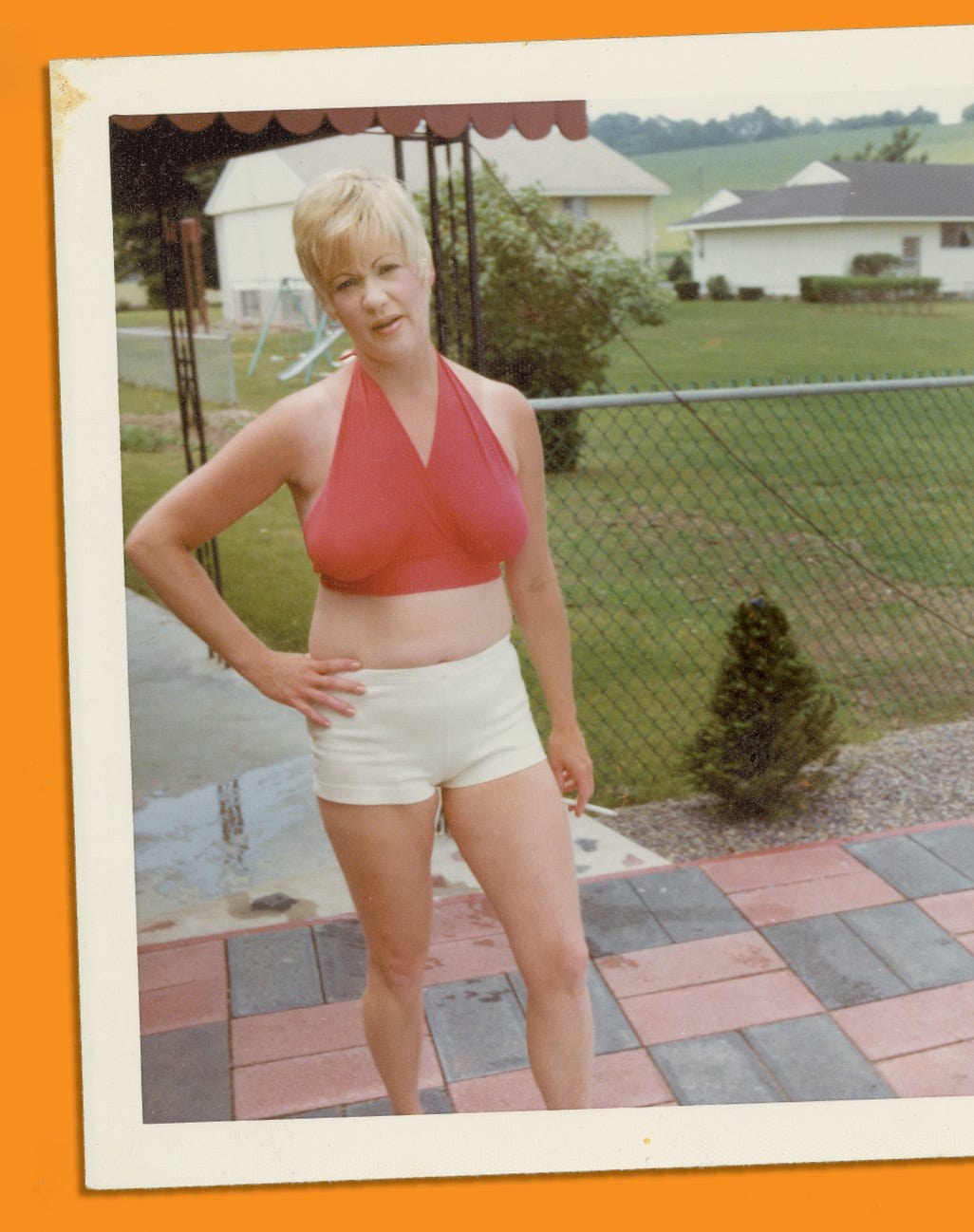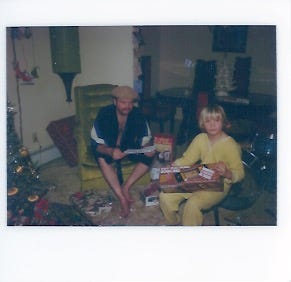When my mom died it was expected. She was a drinker, a pill taker, and a hard-core smoker. After she was diagnosed with emphysema, she got a fake plastic cigarette thingy so she felt like she was smoking. That lasted about a week before she declared, “This is stupid,” and went back to real cigarettes. When I was a kid, she was fond of telling me that she wasn’t going to live to be an old lady, and then she’d poke me on the nose like what she actually said was, “Let’s go out for ice cream!” All of this was very on-brand for my mom, Rosie.
In some ways, because of all the preparation for her death, it was not horrible to process my feelings when she died. I had been dealing with that inevitability for years.
But my dad had all kinds of longevity in his family, and I never thought he was going anywhere. I’m talking about grandmas and great-grandmas making kick-ass mac and cheese into their late 90s. They were all, “90 is the new 70, yo.” My dad was only sick one day in my childhood. So when, out of the blue, I was told he was sick and had 6 months to live, it was more than just a little bit of a shock.
When he died, both my parents were gone. I felt alone. I felt untethered.
Many months after my dad’s death, I sat in a therapist’s office wondering why I still felt so sad. I remember asking when I would feel like me again. The therapist I sat across from had simple words for me. Grief takes time.
I was reminded of this journey through emotions and grief as I talked to Sarina on a recent episode of my podcast, Well…Adjusting.
Sarina’s mom died when she was just 16 years old. A decade later, she’s celebrating major life milestones, but still feels the aching loss of her mother. She’s sad because she’s not able to share her success wither her mom. She also wishes her mom could see how wonderful it all turned out for her. Together, Sarina ad I had a deep and moving discussion about whether loss ever gets easier, and how we can all find levity in the messy parts of our journeys to healing. I’m digressing, but I do have to say, you want to listen to this conversation. All you’ve got to do is click right here.
Anyway, back to my point, and I do have one… at the end of the episode, we brought in my very own therapist extraordinaire, Patricia Simko as our Expert of the Day to share some words of wisdom on grief. Here’s what she had to say.
Patricia: I think that talk therapy around grief is really important. And there are grief groups. Some people don’t like groups because everybody’s talking about their own grief, but that is a place to go to talk and to listen. There is also Reiki therapy, that’s a therapy where a person is trained to see where you’re holding your body armor. They get you to feel your body armor, and then they work systematically at taking it apart so that you feel what’s underneath your body armor. Grief is something we can feel in our bodies.
I would also say that it’s not necessarily the norm to feel stuff like that. It can be a sign of deep processing. It could also be a sign of dissociation. “Well, I’m not angry at all, but I have irritable bowel syndrome” or “things are fine in my life but I get migraines.” It may mean some disowned emotions are getting lodged in the body.
But here’s the thing about grief. Grief can be regular grief, in which case you will get over the grief within a certain period. Not that you’ll forget the person or stop loving the person or not feel the loss, but it won’t be so exhausting and draining and depressing. They used to say that would happen for a year. But I’ve worked with people for as long as five or six years, where it’s taken that long to move on from grief.
The longer it takes, the more it points to something called “Complicated Grief.” With grief, you kind of feel yourself letting go of the inner structure of the person that you’ve been clinging to or holding on to. Who’s been a part of you. You can release them and feel them going away. Not that they’re gone, not that you don’t have a memory, not that you can’t find them if you look for them, but they’re not the center of your focus and awareness after a certain period.
If they remain your center of awareness after a while, if something is exhausting and draining and depressing for eight years, there’s more there. There’s more complexity to the relationship. Often there is a feeling like, I can’t let them go because part of me is in them. I have projected part of myself into them, and I can’t let go of that.
For this kind of grief, talking helps. Talking reduces the impact of the trauma.
Want More Real Talk, Life Hacks, and Well…Adjusting?
Listen to Well…Adjusting here https://pod.link/welladjusting or on your favorite podcast platform.
If you like the pod, don’t be afraid to Follow, Rate & Review Well..Adjusting. If you’re all, meh, then maybe don’t bother with the rating and the reviewing.







"Often there is a feeling like, I can’t let them go because part of me is in them. I have projected part of myself into them, and I can’t let go of that." This is hard-hitting and I think it can also apply to exes and old friends, people who haven't died but are gone from our lives who leave a big hole.